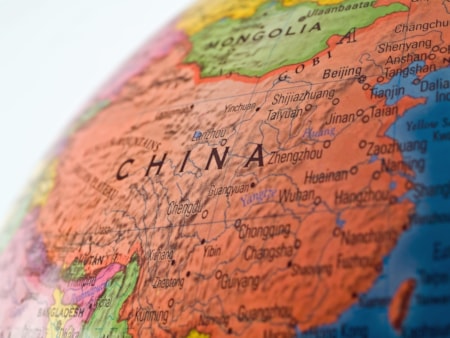
Through increasing economic exchange and in the absence of a clear policy for Ibero-America from the United States, Spain, and the rest of Europe, China is increasing its political and cultural influence in the region, establishing an alternative to the Western model in an increasingly interconnected world. In response, and in the face of the retreat of the old continent and the US in their historical positions as main partners of the Ibero-American community, the Center for Studies, Training, and Social Analysis (CEU-CEFAS) has published the report 'China's Influence in Ibero-America'.
The great economic development of China in the last 25 years has made the Asian power a massive consumer of raw materials, largely from Ibero-America. The United States and Europe have retreated in their historical positions as main partners of the Ibero-American community, allowing the great economic dependence of the region on China to become a vector of political and social influence.
Since the beginning of the century, China's dependence on Ibero-American imports has been very high. The availability of natural resources has been key to China's accelerated economic development since it does not have enough raw materials in its own territory to sustain its demographic and economic size. To ensure access to raw materials, the Chinese government has taken control of parts of the Ibero-American supply chains, acquiring extraction rights and agricultural product trading companies in producing countries.
According to the data collected by the study, the acquisition of soybeans (74%), copper (68%), meat (43%), iron (22%), and oil (10%) from Ibero-America have played a leading role in China's economic influence in the region. Agricultural and extractive products (mining and oil) lead Ibero-American exports; China purchases 14% of all Ibero-American goods exports, accounting for 34% of extractive resources and 20% of agricultural goods exported by the region, following a growing trend over the past two decades.
Currently, with 430 billion USD in trade, China has surpassed the European Union as the second-largest trading partner of Ibero-American states after the United States and is the region's largest sovereign creditor and the main source of financing for some governments such as Venezuela, Ecuador, or Argentina, through loans repaid or guaranteed with raw materials.
China, the investor with the largest share in recent years
Since 2008, China's foreign policy has sought to add greater political and cultural sway in the region to its economic clout. Thus, China has evolved from a situation of "cold politics and hot economy" to one of "hot politics and economy" with respect to Ibero-America, signing strategic partnerships with the main Ibero-American governments.
As a complement to state financing, following the region's incorporation into the 'Belt and Road Initiative', the five major Chinese commercial banks, controlled by the government, signed 62 loan contracts with Ibero-American debtors, mainly Argentinians and Brazilians, for the financing of energy and transportation infrastructure projects, especially ports and railway projects. Although the total foreign direct investment in Ibero-America (172.000 million dollars) from 2000 to 2021 represents barely 6% of the total received by the region in said period, China is the investor that has gained the most share in recent years. The main beneficiary of direct investment by China in this period has been Brazil (35%), followed by Peru (17%), Chile (12%), Mexico (10%) and Argentina (9%). Energy infrastructure (75% of the total) and transportation (21%) concentrated most of the financing that benefited mainly Venezuela (50% of the total), Brazil (24%), Ecuador (14%) and Argentina (13%). Today, according to data from central banks and the World Bank, the external debts of Venezuela and Ecuador to China exceed 5% of their GDP.
This influx of money to the region has also benefited Chinese companies, often responsible for carrying out the construction of the infrastructure. In total, the five main Chinese contractors, all state-owned, have carried out orders for an amount that exceeds 50% of the total funds contributed by bilateral financing for the development of the projects.
The report also addresses other topics, such as the situation of Asian immigrants in Ibero-America, Chinese cultural influence in the region through the expansion of the Confucius Institutes network, media and journalists, scientific-technological cooperation, and the perception of China abroad.
This first study by the think tank of the Fundación Universitaria San Pablo CEU presents the challenges of the new strategic configuration and invites reflection on the role that Western powers want to play in a region with which we share history, culture, language, and ties that go beyond commercial relations.
The Center for Studies, Training and Social Analysis (CEU-CEFAS) of the Fundación Universitaria San Pablo CEU, launched in 2021, aims to train free and responsible citizens within the framework of conservative and Christian principles, to lead a process of national and social regeneration based on humanism and human dignity.